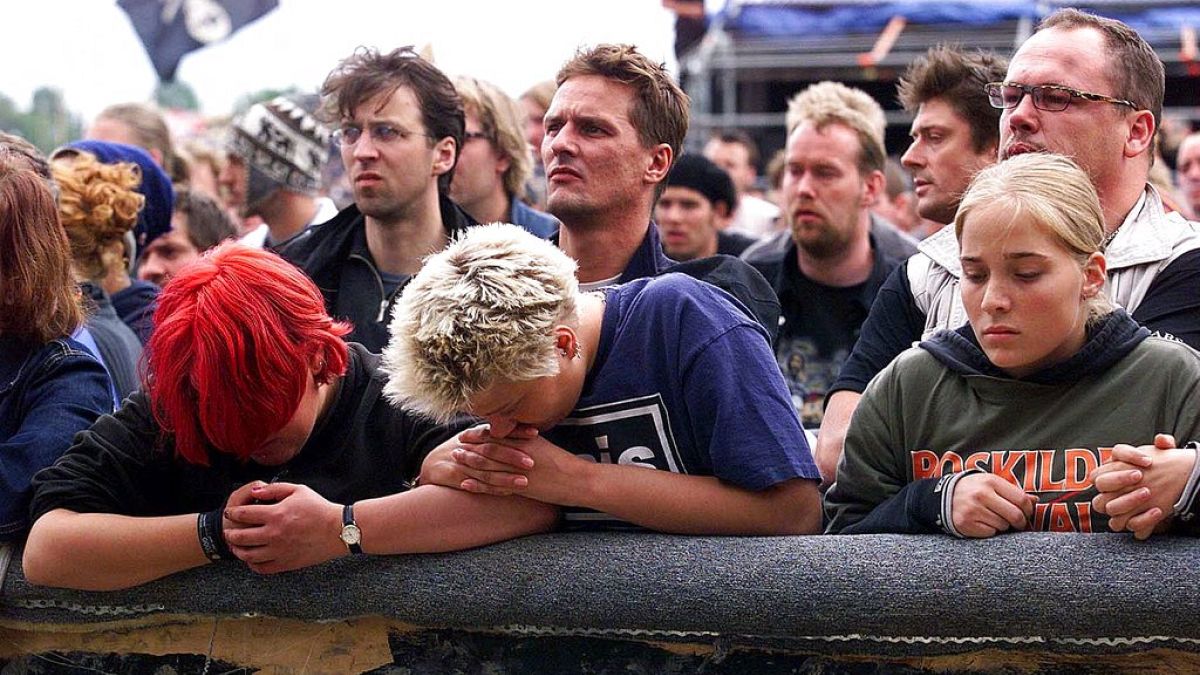

As the world unfolds in its myriad of bustling events, we take a moment to reflect on a poignant chapter in music history while exploring the vibrant and diverse cultural landscape of Europe today. At the heart of our reflection is the Roskilde Festival tragedy, a sobering reminder of the fragility of life amidst the joyous celebration of music. Coupled with intriguing economic insights and cultural highlights, Europe’s narrative is as rich as it is complex.
On June 30th, 2000, Roskilde Festival in Denmark became the site of a heartbreaking incident that claimed the lives of nine young men during a performance by Pearl Jam. This tragic event prompted significant changes in festival safety protocols that have since been implemented globally. The tragedy underscored the delicate balance between the carefree euphoria music seeks to inspire and the critical importance of oversight to ensure the safety of all attendees.
Two and a half decades later, Roskilde stands as a testament to resilience and learning. In the years that followed, festival organizers and music venues worldwide took notable strides to enhance crowd safety, implementing measures that range from improved crowd management techniques to advanced emergency response strategies. The sobering lessons from Roskilde have undoubtedly saved countless lives, transforming the way large musical gatherings are planned and executed.
Elsewhere in Europe, economic dynamics play out in various forms. Inflation holds steady at 2.6%, but disparities in the cost of living reflect broader economic trends. Denmark, known for its high standard of living, ranks as the most expensive EU country for items such as bread, cereals, and fish. Meanwhile, Romania offers more affordable options for fruits and vegetables, highlighting the diverse economic conditions within the EU. These contrasts serve as a lens through which the complexities of European economies can be appreciated, each country weaving its unique narrative into the collective tapestry of the continent.
Amidst these economic realities, Europe’s cultural scene continues to thrive. Noteworthy events this week include a unique pairing of art legends Vincent van Gogh and Anselm Kiefer in an unprecedented exhibition that promises to captivate art enthusiasts with its blend of the classic and contemporary. This cultural agenda expands to the realm of entertainment as well, with the much-anticipated release of “Jurassic World: Rebirth,” thrilling audiences with its imaginative return of cloned dinosaurs. Music lovers, too, have reason to rejoice as Kesha unveils her latest album, a creative endeavor under her newly established label, marking a new chapter in her musical journey.
As we navigate through these stories, we embrace a mindful appreciation of the diverse experiences Europe offers. From economic insights that reveal the vast breadth of living conditions across countries, to cherished cultural showcases that celebrate the richness of human expression, we are reminded of the interconnectedness of our global landscape. Each story is a thread in a broader narrative, encouraging us to pause and reflect on the evolving fabric of our world.
In this intricate dance of news and culture, the Roskilde tragedy remains a significant touchstone—a reminder of past lessons learned and a beacon guiding future actions. As festival-goers gather with hope and excitement, the memory of those nine individuals serves as a solemn commitment from the industry to safeguard joy while honoring their legacy. May we always find balance in celebration and caution, ensuring that our shared experiences are as safe as they are enriching.
Through these stories, we find a calm and steady rhythm that invites contemplation and connection, as we journey across Europe’s vibrant present and its path forward.
Source: {link}
